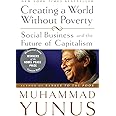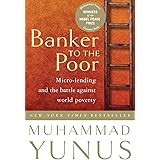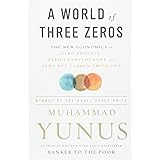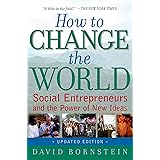
Enjoy fast, free delivery, exclusive deals, and award-winning movies & TV shows with Prime
Try Prime
and start saving today with fast, free delivery
Amazon Prime includes:
Fast, FREE Delivery is available to Prime members. To join, select "Try Amazon Prime and start saving today with Fast, FREE Delivery" below the Add to Cart button.
Amazon Prime members enjoy:- Cardmembers earn 5% Back at Amazon.com with a Prime Credit Card.
- Unlimited Free Two-Day Delivery
- Streaming of thousands of movies and TV shows with limited ads on Prime Video.
- A Kindle book to borrow for free each month - with no due dates
- Listen to over 2 million songs and hundreds of playlists
- Unlimited photo storage with anywhere access
Important: Your credit card will NOT be charged when you start your free trial or if you cancel during the trial period. If you're happy with Amazon Prime, do nothing. At the end of the free trial, your membership will automatically upgrade to a monthly membership.
Buy new:
-45% $9.89$9.89
Ships from: Amazon.com Sold by: Amazon.com
Save with Used - Very Good
$7.21$7.21
Ships from: Amazon Sold by: Jenson Books Inc

Download the free Kindle app and start reading Kindle books instantly on your smartphone, tablet, or computer - no Kindle device required.
Read instantly on your browser with Kindle for Web.
Using your mobile phone camera - scan the code below and download the Kindle app.

OK
 Audible sample Sample
Audible sample Sample 


Creating a World Without Poverty: Social Business and the Future of Capitalism Paperback – Illustrated, January 6, 2009
Purchase options and add-ons
- Print length320 pages
- LanguageEnglish
- Publication dateJanuary 6, 2009
- Dimensions5.5 x 0.8 x 8.25 inches
- ISBN-101586486675
- ISBN-13978-1586486679
Books with Buzz
Discover the latest buzz-worthy books, from mysteries and romance to humor and nonfiction. Explore more
Frequently bought together

Customers who viewed this item also viewed
Editorial Reviews
About the Author
Product details
- Publisher : PublicAffairs; Illustrated edition (January 6, 2009)
- Language : English
- Paperback : 320 pages
- ISBN-10 : 1586486675
- ISBN-13 : 978-1586486679
- Item Weight : 2.31 pounds
- Dimensions : 5.5 x 0.8 x 8.25 inches
- Best Sellers Rank: #957,176 in Books (See Top 100 in Books)
- #553 in Development & Growth Economics (Books)
- #843 in Business Ethics (Books)
- #2,680 in Biographies of Business & Industrial Professionals
- Customer Reviews:
About the author

Karl Weber is a writer, editor, and publisher who specializes in serious works of nonfiction on topics like business, politics, social issues, and personal development. He has worked with noted authors and leaders including former president Jimmy Carter, Nobel Peace Prize laureate Muhammad Yunus, secretary of defense Ash Carter, and Michigan governor Jennifer Granholm. His newest venture is Rivertowns Books, an indy publisher that uses a hybrid business model to produce worthy books on topics of social interest and importance.
Customer reviews
Customer Reviews, including Product Star Ratings help customers to learn more about the product and decide whether it is the right product for them.
To calculate the overall star rating and percentage breakdown by star, we don’t use a simple average. Instead, our system considers things like how recent a review is and if the reviewer bought the item on Amazon. It also analyzed reviews to verify trustworthiness.
Learn more how customers reviews work on AmazonReviews with images
-
Top reviews
Top reviews from the United States
There was a problem filtering reviews right now. Please try again later.
If I could give this book one hundred stars, I would; that would still be too few. Books have the potential to advance and create discussions about ideas, concepts, and practices that can reform everything we do in needed directions. Creating a World Without Poverty is one of the few books I've ever read that fulfills that potential.
Professor Yunus (co-winner with the Grameen Bank of the Nobel Prize for Peace in 2006) has written an extremely thoughtful and thought-provoking work that successfully argues for a new type of organization to serve the unserved among the poor, the social business. A social business seeks to optimize social benefits rather than profits. In defining its purpose, a social business begins by defining a social need that wouldn't otherwise be served. Profits are kept at the minimum level needed to keep the enterprise viable. Ideally, no dividends are paid to owners. The original investors get a return of their capital, and then the organization is purchased by the poor . . . using microcredit from organizations like the Grameen Bank in Bangladesh. The Grameen Bank is a model for such an enterprise, and in the book Professor Yunus describes several other ventures that the Grameen Bank has initiated with partners steeped in expertise related to the needs of the poor.
Professor Yunus describes his experiences in founding the Grameen Bank and the lessons he learned from this work:
1. The poor are very capable of solving problems -- survival needs have honed their skills.
2. Poor people often need very few resources to pull themselves out of poverty. They are used to making do with little and will frugally expand a small farm or business.
3. Many poor people are poor because they are exploited by those who loan them money, provide supplies, and purchase their offerings. By providing inexpensive microcredit, poor people can escape from that exploitation.
4. By helping the whole family make progress, you can lift a family out of poverty permanently through more income, savings, capital, improved living conditions, and education.
5. By focusing on helping poor women, the resources are used most effectively.
6. Poor women are good credit risks.
7. Some needs cannot be met without adding expertise that the poor don't have (such as developing more nutritional, low-cost snacks for youngsters) but which those in profit-making companies often do have.
8. Some leaders of profit-making companies are moved to make a difference for the poor and can assist in establishing new enterprises to solve important problems that plague the poor (blindness, malnutrition, and lack of communications).
9. Creating social businesses uses a lot fewer resources than charity or government initiatives and leads to better results for the poor.
The book goes into some detail in describing the development of the Grameen Bank (which makes small loans -- usually around $100 -- to poor people who lack collateral to qualify for loans at traditional banks) and a recent social business start-up by Groupe Danone and Grameen Bank to provide a nutritional yogurt snack in Bangladesh. There is also a description of plans for a social business venture to provide eye care sponsored by Grameen Bank that is being helped through training at Aravind Eye Hospital in India (you can read about Aravind in The Fortune at the Bottom of the Pyramid).
The book's vision is wider than what I have just described. Professor Yunus has considered how the world might be filled with such social businesses and how they might operate (competitive salaries for employees, engaging poor people as suppliers, distributors, customers, and employees as much as possible, stock markets for the shares in such firms, and ways that more initial capital might be generated by foundations, governments, investors, and for-profit businesses). He has also done some fine thinking about the governance challenges of such enterprises.
I think what he is describing will work. I've seen partial prototypes operating in the United States. In major cities in the United States, some hospitals that serve the poor have added high-profit surgery centers to earn funds to pay for the medical care given to the poor. Aravind charges those who can pay full price for cataract surgery and uses the profits to provide free surgery to poor people. Some companies been left to charities by their founders at death with the dividends of the companies used to help the poor (Hershey had such an origin in helping orphans). But remember that Professor Yunus's model is broader than that . . . the social business should develop a new business model that innovates in serving the poor in new ways, not just subsidize serving the poor in old ways.
I have been writing about continuing business model innovation since 2003 and can assure you that Professor Yunus is on the right track with his prescriptions. In a world where we often make fun of economists, it's nice to know that there's one who can climb down from the ivory tower to appreciate the potential of applied microeconomics to the causes of problems for poor people.
I particularly liked the concept of having poor people be part of the solutions. Poor people know what they need better than anyone else does. Their solutions are going to be the most effective ones.
Lest you think this is all over optimism, Bangladesh has seen the level of poverty in the country transformed by these kinds of changes. The day is not too distant when Bangladesh will know about poverty only through visiting museums that describe what it used to be like. The poverty rate has fallen from 74 percent in 1974-75 to 40 percent in 2005. That's still too high, but it's a huge reduction in only three decades in a country without natural advantages other than the ingenuity and hard work of its people.
It is Professor Yunus's wish that poverty only be seen in museums throughout the world.
He also points out that global environmental problems need to be solved or low-lying Bangladesh will be under water from global warming that melts the polar ice. It's a sobering thought.
Bravo, Professor Yunus!
Muhammad Yunus is a hero to those of us who seek to broaden the ownership of business. As a Bangladeshi economics professor, he wanted to do something about the crushing hunger and poverty he saw around him. He gathered 42 borrowers from the village near his campus and lent them a total of $27 from his own pocket. He followed that by guaranteeing bank loans to the poor. In 1983, he started Grameen Bank, which shared with him the 2006 Nobel Peace Prize. The results, from his acceptance speech:
"Today, Grameen Bank gives loans to nearly 7.0 million poor people, 97
percent of whom are women, in 73,000 villages in Bangladesh. . . . Since
it opened the bank has given out loans totaling about US $6.0 billion. The repayment rate is 99 percent. Grameen Bank routinely makes a profit. . . .
58 percent of our borrowers have crossed the poverty line."
Grameen Bank has become the model for a worldwide microcredit movement. By 2006, microloans had been extended to 100 million of the world's poorest families.
In this book, Professor Yunus argues for a new structure, the "social business," which is "a business that pays no dividends. It sells products at prices that make it self-sustaining. The owners of the company can get back the amount they've invested in the company over a period of time, but no profit is paid to investors in the form of dividends. Instead, any profit made stays in the business--to finance expansion, to create new products or services, and to do more good for the world."
Governments, charities and "profit-maximizing businesses" are not enough to solve the problems of poverty, disease and environmental degradation, Professor Yunus argues; "we need a new type of business that pursues goals other than making personal profit--a business that is totally dedicated to solving social and environmental problems."
He makes a distinction between social businesses and "socially-responsible" businesses, which are intended to serve a social objective, while making a profit. They have a fatal flaw, according to Professor Yunus, because their executives "will gradually inch toward the profit-maximization goal, no matter how the company's mission is designed."
The social business is intended to make a profit, but not to pay dividends. It would plan to pay back the amount invested over time, which might be from five to 20 years. Shareowners would continue to own the business after they were repaid their investment. The motive of making a profit on the shares would be replaced by pride in achieving a social objective. Many of the investors would be individuals and institutions that make charitable gifts. They would see the benefits from a business that was to return their funds, which they could use to invest in more social businesses. (However, earning enough after-tax profits to cash out investors in five to 20 years is a big hurdle for a new business. It could put the social business at a real competitive disadvantage in pricing its products and services. Most U.S. businesses don't pay any dividends, while many others keep dividends at less than a three percent yield on the shares' market value.)
"Who will invest in a social business?" This question is a section of the book. The answer given is that money will come from people who would otherwise support charities, as well as from charitable foundations and from businesses that fund charitable activities. A tax exemption could provide government support for social businesses. Shares in social businesses would be traded in aftermarkets, with the value determined by "the social benefit produced," rather than profit expectations.
What about capital needs larger than those served by Grameen Bank and the microcredit movement? The book lists some 25 members of the "Grameen Family of Companies," which include social businesses and support organizations. Grameen Fund provides venture capital, taking a 51% equity ownership. Grameen Business Promotion Company guarantees loans from Grameen Bank of up to $10,000 or more. Grameen has recently entered joint ventures with Danone, the world's largest yogurt company, and Intel.
A huge potential project described is "to create world-class port facilities for the growing economies of Bangladesh as well as her neighbors, and to build a network of superhighways to connect those countries with the port facilities." The money would come from "social investors" or donor countries, who would later sell the project to a trust. In turn, the trust would sell "shadow shares" to poor people. These "shadow shares" would not represent ownership of the facilities but would entitle holders to any dividends declared by the trust board. Shares could be purchased on credit, to be paid from dividends. The shares could only be sold back to the trust. (If this project goes forward, perhaps Professor Yunus would consider having the shares be direct ownership, with voting rights, so that the poor families could be part of a community of business owners.)
Grameen Bank's great success flies against some basic economic assumptions, according to Professor Yunus. One is that "all people are motivated purely by the desire to maximize profit." (By "fear and greed," in Wall Street terms.) Another "is the assumption that the solution to poverty lies in creating employment for all." Self-employment is the alternative supported by Grameen Bank. Millions of its borrowers have crossed the poverty line because they now have earnings from both their labor and their invested capital. (The next progression is when individuals have enough income from their capital alone that they don't need to sell their labor. They can be the ones who devote their time, and discretionary investment income, to solving social problems.)
There is a brief section in the book that describes a second kind of social business, one "owned by the poor or disadvantaged" where "the social benefit is derived from the fact that the dividends and equity growth . . . will go to benefit the poor." Grameen Bank itself is "a social business by virtue of its ownership structure," since 94% of its shares are held by its borrowers. In 2006, it earned $20 million and paid dividends to its shareowners.
The error of most programs to alleviate poverty, Professor Yunus writes, is that they assume that providing jobs and job skills is what is needed. "But if you spend enough time living among the poor, you discover that their poverty arises from the fact that they cannot retain the genuine results of their labor. And the reason for this is clear: They have no control over capital. The poor work for the benefit of someone else who controls the capital." (Beyond microcredit could be broadening the ownership of capital so that the formerly poor can become independent of the return on their labor.)
Top reviews from other countries
特に共感したところは…
「貧しい人も含めて、すべての人には想像性・可能性があるのだから、我々としてはその想像性・可能性が発揮できる環境を作る必要がある。その人の想像性・可能性が発揮されることにより、その人の自尊心、自身が育まれ、自立的に貧困から抜け出すことができるようなる。」
「貧困問題の全体像を見てしまうと、あまりの問題の大きさに何も出来なくなってしまうが、まずは目の前の人たちに対して援助して欲しい。それがうまくいけば、次第にその動きは自然と広がっていく。」
「男性に対して資金援助するよりも、女性に対して資金援助した方が、より良い結果をもたらすことが多い。全体として、女性の方が、稼いだお金を家族全体、特に子供のことを考えて使うので、地域社会に良い結果をもたらす。」
「貧困問題の解決のためには、従来の寄附等による与えるだけの援助だけではなく、ビジネスの良い面(持続性、効率性など)を取り入れた、より持続的、効果的な援助をしていく必要がある。そのためには、従来からある「利益追求型のビジネス(Profit- Maximizing Business)」の他に、新しい「社会貢献型のビジネス(Social Business)」といういものを世の中に確立する必要がある。人には、利益を追求したいという願望だけではなく、社会の役に立ちたいという願望もあるのだから、「社会貢献型のビジネス」は十分に実現可能である。」
「どのような世界にしたいのか? その世界の実現を強く願って、出来ることから行動を起こそう。そうすれば必ずその世界は実現する。」
といったところです。あとは、フランスのダノン社との共同プロジェクトについても、非常に興味深く読むことができました。
「貧困のない世界」の実現に向けた著者の熱意が随所に感じられて、こちらも前向きな気持ちになることができました。多少難しい単語もありましたが、興味深く読むことができました。良い本だと思います。













